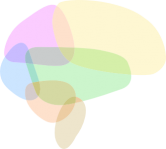Neurosurgery
Neurosurgery includes surgery of the brain, spinal cord, and peripheral nerves. In contrast to neurology, neurosurgery is a surgical discipline. Neurologists and neurosurgeons "share" the same organ system, but the therapeutic approaches are often different. Neurologists' expertise lies primarily in conservative (e.g., medication) therapies, while neurosurgeons are mostly operative, i.e., surgical. The boundaries are not always obvious, there is a lot of overlap.
This page provides information on neurosurgical forms of therapy for diseases of the brain, spinal cord, and peripheral nerves. Neurosurgery also treats the sheaths and supports of the central nervous system (skull, skull base, or spine) and its vascular supply.
There are several large centers in Austria in which complicated and sometimes very complex operations are performed. Surgeries requiring a large, well-coordinated team. Intensive medical care is often necessary after the surgical procedure, especially in operations on brain tumors and vascular malformations.
Besides, there are also neurosurgical interventions in which this complex infrastructure is less critical. Instead, personal contact with the surgeon, discussion, flexibility in planning, and good networking with other disciplines play a decisive role.
Often, patients want a second opinion. Especially with operations on the brain, it is easy to understand that patients are often hesitant. Here a detailed conversation can resolve fears and clear up ambiguities.
